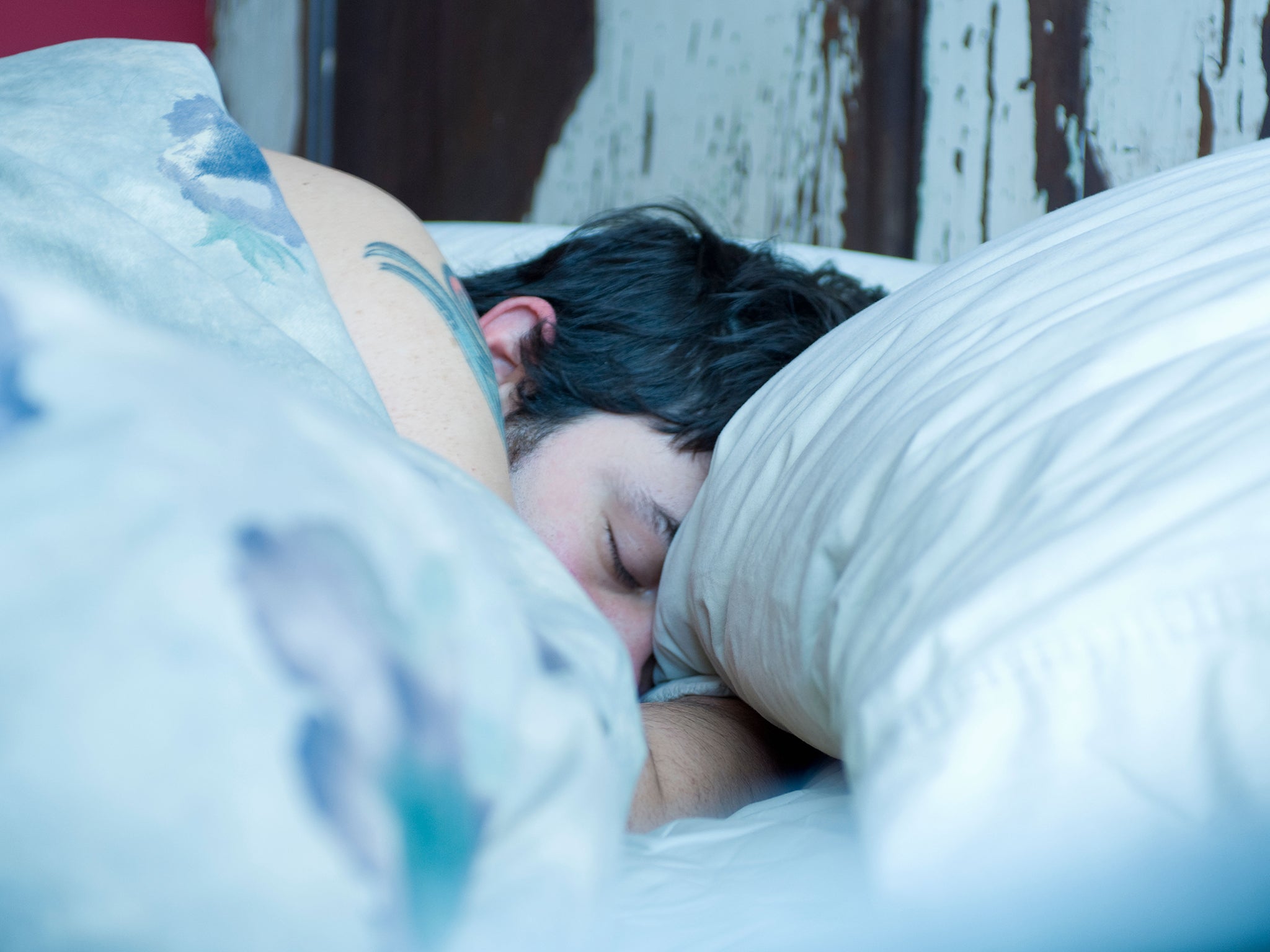How a new generation of sleeping sensors is getting wearable technology investors excited
'We have exercise monitors, so why not sleep monitors?'

Your support helps us to tell the story
From reproductive rights to climate change to Big Tech, The Independent is on the ground when the story is developing. Whether it's investigating the financials of Elon Musk's pro-Trump PAC or producing our latest documentary, 'The A Word', which shines a light on the American women fighting for reproductive rights, we know how important it is to parse out the facts from the messaging.
At such a critical moment in US history, we need reporters on the ground. Your donation allows us to keep sending journalists to speak to both sides of the story.
The Independent is trusted by Americans across the entire political spectrum. And unlike many other quality news outlets, we choose not to lock Americans out of our reporting and analysis with paywalls. We believe quality journalism should be available to everyone, paid for by those who can afford it.
Your support makes all the difference.There’s nothing quite like a good night’s sleep. Doctors have always known it – and now big business is waking up to the fact.
It was reported last week that a 23-year-old British tech prodigy, James Proud, is set to raise $40m, (£25m) in funding from Singapore’s state investment company for his business, Hello.
The product that is attracting investors is called Sense: a little orb that sits on your bedside table and quietly monitors the light, temperature, humidity and even the particulate matter in the air of your bedroom. It records your snores and sleep-talking, and comes with a little white gadget that clips on to your pillow, recording whether you’re thrashing around or lying still and sound asleep.
It is the latest and, so far, perhaps the most comprehensive of the “sleep sensors” that are coming on to the market.
With exercise and diet already catered for by multi-billion-pound industries, companies are beginning to recognise the untapped potential of sleep.
Wearable tech company Fitbit, whose shares rose nearly 50 per cent last week on its first day of trading on the New York stock exchange, has “sleep tracking” technology wired into its hugely popular devices, as does its rival Jawbone.
Sony and Samsung’s wearable devices support sleep tracker apps, and the market giant Apple is rumoured to be preparing a sleep sensor component for its successful new Apple Watch.
Supporters say the rise of the sleep sensors could get us all thinking about how well we’re sleeping, resulting in more rested and healthier, happier people.
Sceptics wonder whether sleep is the new frontier in global capitalism’s (so far highly successful) campaign to consumerise every aspect of our lifestyles.
Do they work? Most of the devices on the market only track movement, with some of the most sensitive also monitoring heart rate.
According to Dr Irshaad Ebrahim, of the London Sleep Centre in Harley Street, there is not a great deal they can tell you that you did not already know.
“None of them is actually measuring sleep,” he said. “To do that, you’ve got to measure EEG and EMG [measures of electrical activity in the brain and the muscles] as well as heart rate. There is not a single device out there at the moment that’s been properly validated for measuring sleep.” The devices may even represent a problem, he said: over-thinking your sleep.
“Sleep is part of our 24-hour cycle that should be reserved for nothing,” he said. “Part of the issue for people with insomnia is that they are hyper-aroused, they are thinking too much, their adrenaline system is in overdrive and we need to dampen that down to enable the sleep process to start.
“The more preoccupied you become with sleep, the less you are going to sleep.”
However, many are clearly intrigued about the potential for a new generation of more advanced bedtime technology.
SleepCogni, a device that has the backing of Dr Ebrahim, has emerged from research at Sheffield Hallam University, and is claimed to be the “world’s first pre-sleep device that winds the patient down to a sleep-ready state”.
Due to launch on the crowdfunding platform Kickstarter in September, it will not only measure environmental factors, but also “help users to fall asleep using a combination of audio, visual and tactile stimuli”, according to Rich Mills, the chief executive of Braintrain 2020, the company behind it.
Meanwhile, researchers at Imperial College London are working with engineers from the university’s signal processing research group on a wearable brain activity monitor that can fit into the ear. If successful, this could have huge implications for the sleep sensor market.
While consumer brain-wave monitoring devices could still be some way off, Mary Morrell, a professor of sleep and respiratory physiology at Imperial, is optimistic about the popularity of the current generation of sleep sensors.
“They raise awareness,” she said. “They aren’t going to give you the absolute truth but they are giving you an indication of what you’re doing … There has been an increase in people coming forward with sleep problems because of greater awareness and I think sleep sensors have been a part of that,” she said.
“Nutrition, exercise, sleep – those are the three things you need to focus on to keep healthy. We have exercise monitors, so why not sleep monitors?”
Join our commenting forum
Join thought-provoking conversations, follow other Independent readers and see their replies
Comments